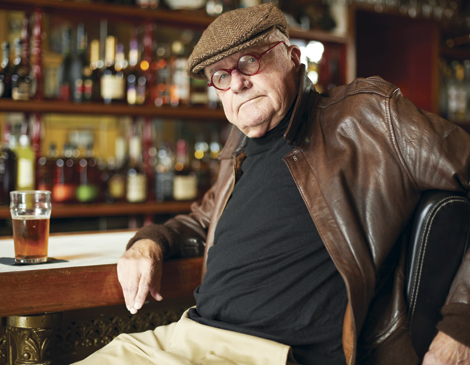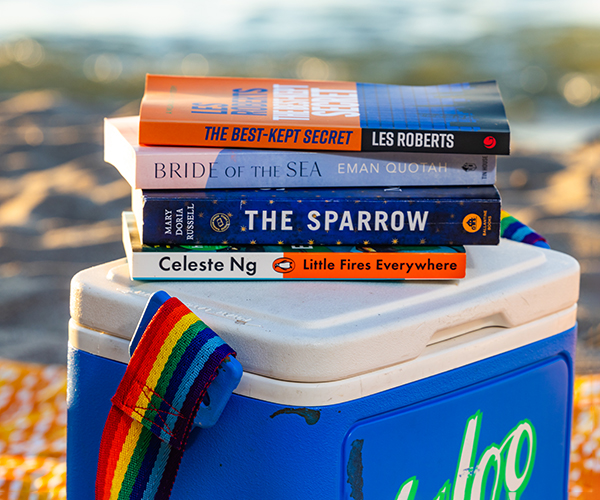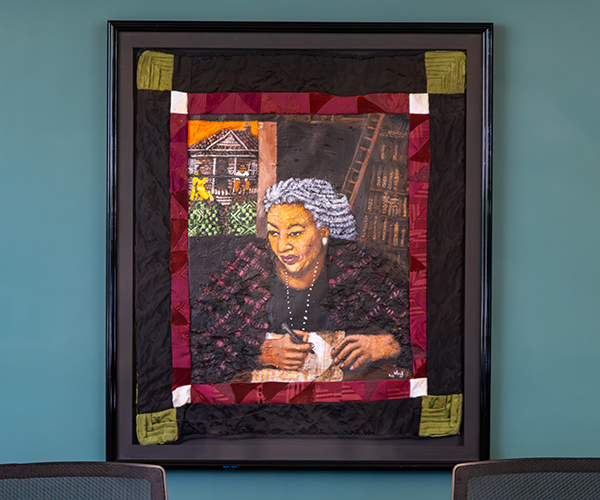Michael D. Roberts had remarkably good luck. Barely in his 20s, The Plain Dealer reporter covered almost every major story in ‘60s Cleveland: the Hough riots, Carl Stokes’ mayoral campaign, Art Modell, the second Sam Sheppard trial, the Vietnam War and the Kent State University shooting. He competed with The Cleveland Press, interviewed President Richard Nixon and was reporting on the street when the iconic photo of a South Vietnamese police chief executing a Viet Cong prisoner was taken. He later became The Plain Dealer’s city editor and then editor at Cleveland Magazine for 17 years. Now 79, he reflects on his formative years in Hot Type, Cold Beer and Bad News (Gray & Co. $24.95), released in November. We hit the bar at Nighttown to talk Cleveland’s golden age of journalism.
I wanted to write a piece of journalism history. So much of Cleveland’s journalism history is passed down verbally, not in the written word.
When I was 5 years old, I wanted to be a newspaper reporter. I was suffering from polio. I had nothing to do.
The neighbors would bring stuff over. I admired The Cleveland Press. It was so, so good in its day. In many ways, I regret that I didn’t get a job there.
I was lucky to come at a time when The Plain Dealer was trying to change, trying to get its shit together. For a while, it did.
I was overwhelmed by being there. We had about 50 to 60 reporters, a number of editors. You’re [all] talking about how the city works.
You couldn’t just be a nice, quiet literary guy sitting in the corner [on the police beat]. You had to get in there, elbow your way through the f------ Press and the TV guys.
I was incredibly lucky. No one was luckier than I. I would walk into a story, and then shit, I’d get it.
At the end of the evening, sitting down at the Headliner [Cafe], and the first edition comes out, it was very important to be above the fold.
You could f------ smirk and be a real asshole. You won for a day. But what are you going to do tomorrow?
The [Hough] riots were a good time professionally for me, because I got some good stories out of there. I was there the whole week.
The city editor says to me, “Mike, get down there and find out what’s going on with this goddamn shit.” So I go down there in the morning, around 11. The [Seventy-Niner’s Cafe, where the riot had started,] had just opened. There’s no one in the bar except one of the [Feigenbaum] brothers, [who owned the place].
The bar is long and narrow. I walk in, all the way to the end of the bar, down toward the restroom.
All of a sudden, this guy bursts through the front door, leaps over the bar. The guy that I’m talking to grabs a baseball bat, whacks him. Man, I thought the guy broke his arm. Well, he was trying to reach for a shotgun.
When you’re in these things, stay near the door.
Carl Stokes’ big fight was with the police department, and it’s still the same thing. The cops run their own operation. They don’t listen to the mayor.
Carl was trying to change that. Any mayor worth his salt gets in a fight with the cops, right away.
Art Modell was politically naïve. He was an outspoken Republican in a Democratic community. To address any kind of stadium issue, he needed the political side. He did not have that. And he was not a good businessman.
If I was scared, I wouldn’t have gone [to report in Vietnam]. That doesn’t mean I wasn’t concerned. To me, it was one of these adventures.
I walked in at the height of the war. Luck.
[At Cleveland Magazine,] we would sit there in an editorial meeting and say, “OK, what’s the hardest story we could get this week?”
It is important that the city have an honest view of itself and not the downtown bullshit guys. Because it’s not going to go anywhere unless you sit down and go: “What kind of government do we have?”
We’ve got to be more thoughtful about who we are, where we’re going and not live in a silly world.
Cleveland media is in serious trouble. It doesn’t appear to me as if, financially, there’s enough support here for decent journalism. People are trying. But you can’t do it without money.
But that doesn’t mean you give up. Sharpen your skills, deal with the issues.




